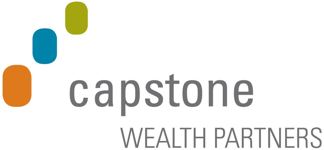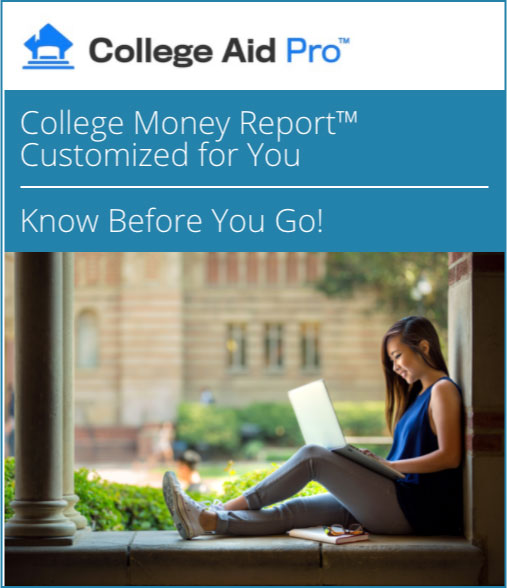What Expenses Can Be Paid from a 529 Plan?
By Joe Messinger, CFP®
May 23, 2019
Up to this point, parents have SAVED for college and SHOPPED for college. Suddenly, you come to a momentous occasion–you have to PAY for college. Gulp! Often parents face this first payment in May of their child’s senior year. If you have a 529 plan, you hopefully have spent a good deal of time investing in it and watching it grow. Now, you get to use it for the first time. Parents must understand what expenses can be paid tax free from their 529 plan. What exactly are “qualified expenses”? What things can you NOT use your 529 funds for?
Why do we care whether they are “qualified” or not?
Because parents will face a 10% tax penalty for funds withdrawn from a 529 plan that are not used for approved expenses.
(The federal government has approved the use of 529 funds to pay for K-12 school tuition. In this piece, we’ll focus on paying for postsecondary education.)
How do we define “qualified expenses”?
Generally, qualified education expenses are “expenses required for the enrollment or attendance of the designated beneficiary at an eligible educational institution.” The designated beneficiary is named in the 529 plan. It can be a child, a grandchild, a relative, a friend, or even yourself. An eligible educational institution includes almost all accredited postsecondary institutions, including some international institutions. You can see the list by clicking here.
To use 529 funds to pay for qualifying expenses remember the student must be attending college more than half-time. Utilizing your 529 plan when attending college less than half time will result in a tax penalty. The student needs to be enrolled “at least half the full-time academic workload for the course of study the student is pursuing.” If 12 credit hours is considered full-time, the student needs to be taking at least six hours for their expenses to qualify.
Let’s get specific.
What are qualified expenses? What can we pay for with 529 money?
- Tuition
- Fees
- Books, supplies, and equipment
- Expenses for special needs services necessary for the student to be able to attend college
- Room and board
- Computer or peripheral equipment, computer software, or internet access
- Apprenticeship programs (added in 2019)
- Student loan payments (added in 2019)
Some nuances to keep in mind.
Fees do not include parking or similar “optional” things a student chooses to buy. The government does not consider parking as a required expense for attendance at the college. Fees do not include health or other insurance payments even when purchased through the college. Sports expenses or health club memberships are not a covered fee. So, sorry…football tickets are NOT a required expense for college.
Textbooks are a qualified expense, and 529 funds can be used to pay for them. Textbooks need to be required reading for the course. Supplies and equipment also have to be required items for the course in order for 529 funds to be used. (Parents will probably use their personal money to pay for books so be sure to save those receipts to be reimbursed by the 529 plan.)
Obviously, payment for a dorm room on campus is included as a qualified 529 expense. Some parents are surprised to find out that off campus housing may be included too. Remember, the student must be enrolled at least half-time. The cost for off campus housing cannot exceed the allowance for room and board set by the college in their cost of attendance calculations.
Computers need to be used by the beneficiary during their time enrolled in school. Software used for entertainment like video games does not count as a qualified expense. Cell phones are not included as a qualified expense–no matter how “smart” they are.
Some details about student loan repayment
At the end of 2019, Congress passed the Setting Every Community Up for Retirement Enhancement (SECURE) Act. Among its provisions was the expansion of the use of 529 funds to include student loan repayment. With this change, qualified expenses include principal and interest payments on student loans.
Borrowers can use up to $10,000 in 529 funds to pay student loans. This limit is per beneficiary. A 529 plan can be transferred to another beneficiary who also could pay up to $10,000 in loans. Contributions to 529 plans can be made at any time including throughout college. As a result, post graduation loan repayments can be made with tax free money.
Be careful if using the student loan interest deduction on federal taxes. Interest amounts paid for with 529 funds do not get included in the total interest claimed on taxes.
What expenses can not be paid for with tax free 529 funds?
In addition to some of the items mentioned above like health insurance, parking, and football tickets, transportation costs are among the items not considered a qualified expense. Even though the student does need to get to and from the college, it is not considered a necessary expense. If the college is a good distance away, parents should factor travel costs into their financial plans for payment out of their pockets.
One last tip to keep in mind when thinking about spending your 529 savings…besides save your receipts!
Often parents use all their 529 savings from dollar one of their college bills. They use the 529 funds for every bill freshmen year and then sophomore year and so on. Before long, they’ve used up their 529 funds and are forced to use student loans to pay for the remaining semesters.
What they don’t realize is that federal student loan amounts are capped to a certain amount each year. Junior year, the student can only borrow $7,500 in federal loans leaving a large gap to be filled by private loans because they’ve used up all their 529 money.
Instead, we suggest parents plan the whole four years out in advance. Take advantage of the available federal student loan amount EACH year starting with freshmen year and spread out the 529 savings too. Get a better picture of what we’re talking about by reading this blog. (We have a graphic to show you what we mean.)
529 savings plans allow for your investment to grow tax-free, and funds withdrawn from the account will not be taxed unless you use the funds for items not included as qualified expenses. So, be careful to use the funds in the smartest way possible to get the biggest tax break possible.
Originally published 8/23/2018
Updated 5/25/2019
Updated 2/3/2020


